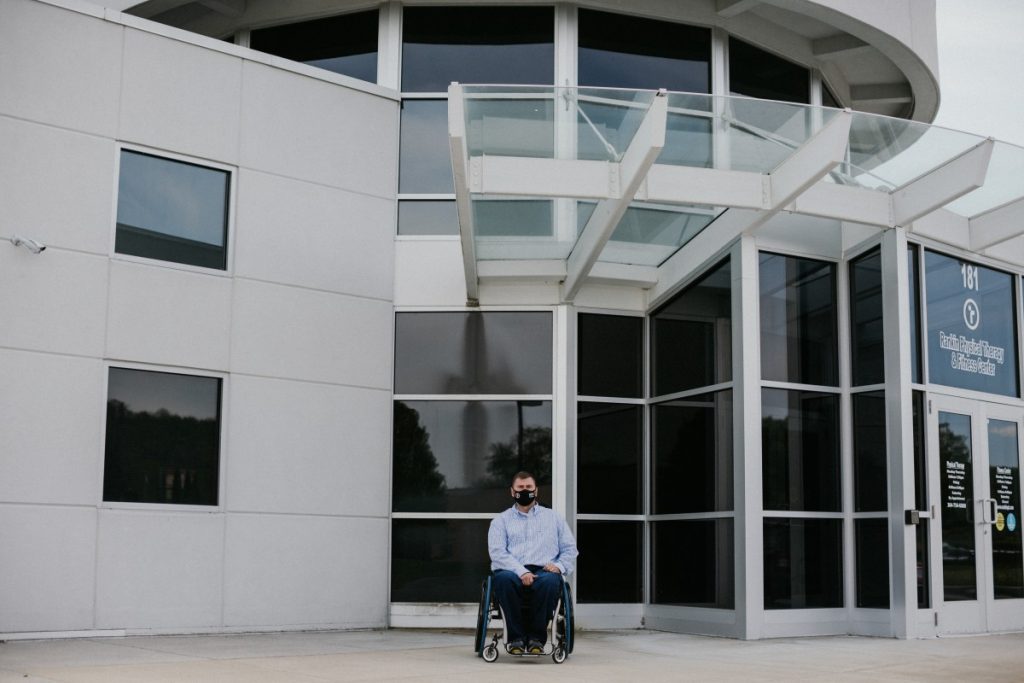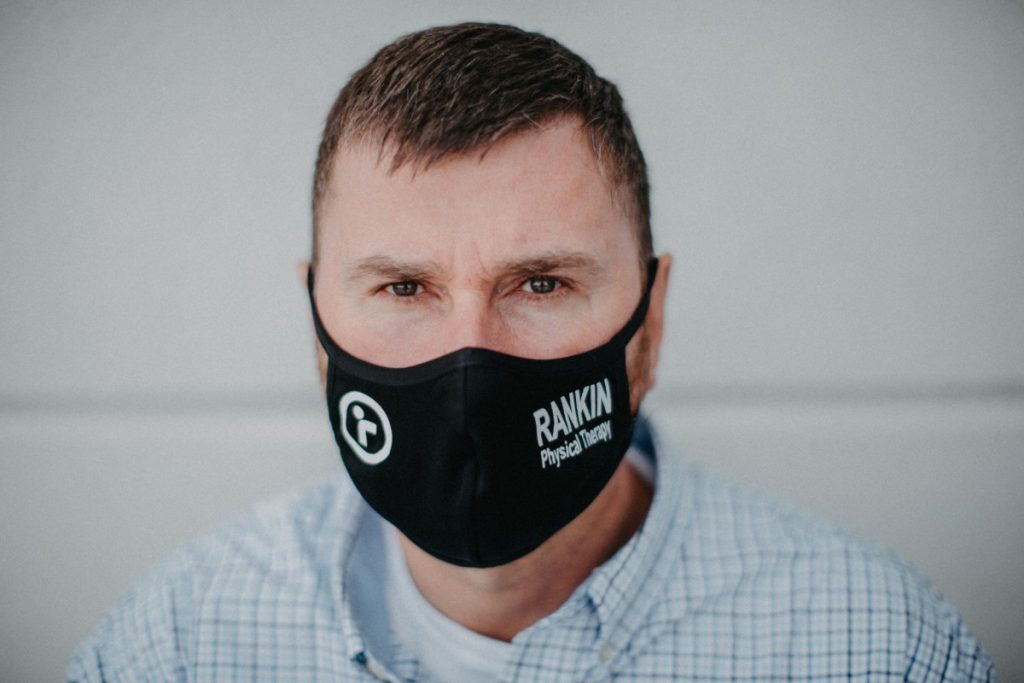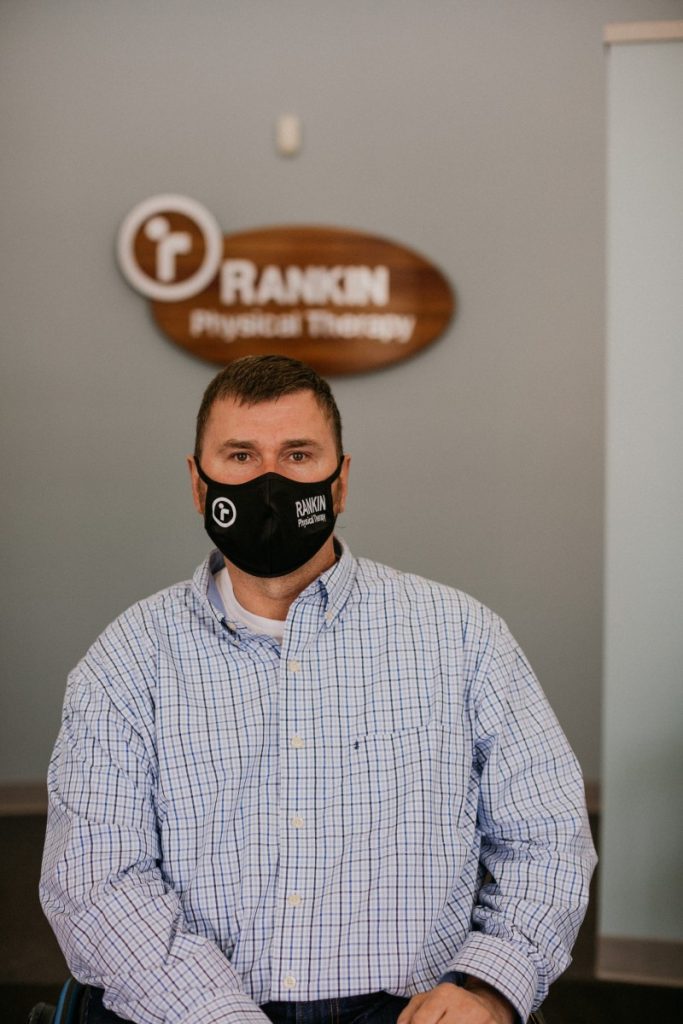The beginning of the COVID-19 pandemic was challenging for Kelley Rankin.
He works as a physical therapist in Hedgesville, West Virginia, and says he doesn’t think people realize how hands-on his field is – they treat pain, restore function and educate their patients on leading a healthier life.
“It was the unknown with COVID-19 that was so difficult,” Kelley says. “We had no idea how this was going to impact our business. Or how we were going to take care of our patients. We’ve worked hard, but it was the lack of control that made us wonder – could this be the end of our business?”
Kelley started his career in 1997; opened his own facility in 2001; and now has eight outpatient physical therapy clinics.
“Spring and summer 2020 were very tough for us,” Kelley says. “Thankfully, we did not have to lay-off any staff.”

“During the slow days, the staff were here cleaning, spending time together, playing music. We weren’t watching the news and soaking in the doom and gloom. The camaraderie amongst the staff was very helpful.”
“Over the last nine months, our visits have steadily increased,” Kelley says. “The past few months have been close to normal. Patients come in and see our staff [who are] constantly cleaning and being sanitary, there is a comfort level there.” His staff kept their equipment clean before the pandemic, Kelley says, but they’ve doubled-down on those efforts.

The intimate nature of physical therapy creates the greatest challenge during a pandemic. It’s a form of hands-on, manual care, Kelley says. “Whether it’s stretching or tissue work, we do that in person. That was the difficulty with the pandemic – how do we maintain that connectivity with patients?”
“Most of our patients are in pain. You have to have empathy. You’ve got to be able to connect with them and understand where they are coming from. They know if you truly care. There are a lot of bright, young people who intern with us. The ones who do well have good social skills. They listen to patients and take time with them.”

In reflecting about lessons learned in the pandemic, Kelley says, “We don’t take anything for granted. Some of the ways we practice will be different. There will always be some kind of infection that threatens our patients. You have to take every precaution to protect people.”
“Every person here is much more than an employee – they are our work family. The morale improved once we got back into a more normal routine. We are hopeful. Healthcare is always evolving and changing.”
Whatever comes next, Kelley will be ready to adapt.
Healthcare is Human is an independent podcast produced by Ryan McCarthy, Molly Humphreys and Kym Mattioli out of Martinsburg, West Virginia. Listen to their episode featuring Kelley Rankin’s full interview here or explore all of their episodes on SoundCloud.



